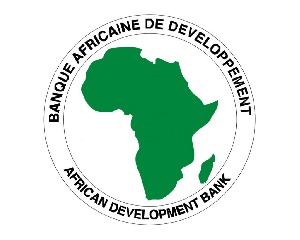 African Development Bank (AfDB) logo
African Development Bank (AfDB) logo
The African Development Bank (AfDB) and the Governors of Central Banks in Africa have resolved to strengthen cooperation on a range of issues to curb illegal financial outflows, bolster measures to improve tax collection and exchange information to improve monitoring of domestic financial markets.
The AfDB has also agreed to work with the Governors of the respective Central Banks on incentives to enable them deepen the financial markets using new technologies and innovations. The partnership is also expected to ease access to global markets that would enable more countries to issue long-term sovereign bonds.
AfDB’s Senior Vice-President Charles Boamah told a special session of the Central Bank Governors at the 52nd AfDB Annual Meetings in India that measures to curb the illicit outflow of finance from Africa remain weak and should be addressed.
“There are clearly big challenges which contribute to illicit financial flows. To boost the domestic financial resources, we need major tax reforms and reforms in the global capital markets. There are tremendous efforts that the AfDB is exerting externally and there may be more retail measures required,” Boamah told a session on Boosting Domestic Resource Mobilisation to Finance African Transformation,” on Wednesday, May 24..
AfDB considers every opportunity to assist African countries to raise finances locally for their economic and social development projects is important, but only if countries implement measures to improve tax collection, said Boamah. New measures should also aim to increase national savings.
Speaking on domestic resource mobilization, John Panonetsa Mangudya, Governor of Zimbabwe’s Reserve Bank, stressed how export incentives and subsidies for producers of export goods helped to stimulate production and export volumes while measures were taken to cushion the market from the rising dollar.
He explained that though Zimbabwe had resorted to the use of the U.S. dollar as its local currency, the rise of the dollar in recent months led to more expensive prices for the Zimbabwean exports. He hailed the AfDB’s support for agriculture and urged the World Bank to follow suit.
Second Deputy Governor at the Bank of Ghana, Johnson Asiamah, stressed that promoting the fixed-income financial markets, which include income from bonds and interests and the issuance of a Diaspora Bond with 15-20 year repayment period, were among domestic fundraising measures being considered.
“We are in the preliminary stage of issuing the Diaspora Bond and would be interested in learning more. We are also putting a premium on how to formalize our financial sector by bringing on board more players from the informal financial sector through our digital payment systems,” Asiamah said.
The Governor of the Central Bank of Gambia, Bakary Jammeh, noted that The Gambia was seeking urgent cash injection from the AfDB to recover from a political impasse earlier this year. He spoke of declining import cover and diaspora remittances.
Meanwhile, AfDB has pledged joint measures and coordination with the Central Banks to support effective management of the foreign currency remittances from African expatriates and migrant workers who regularly send money home.
The AfDB has started implementing projects with countries in Africa to deal with currency risks and stability which is often associated with huge losses suffered by major producers and exporters.
Boamah said the Bank was prepared to work with banks on collective investments to cover the currency risks, measures to enhance financial technology and the AfDB’s landmark lending to the agriculture sector to further enhance raising of local funds for development.
In a speech, the Vice-Governor of the Bank of the Democratic Republic of Congo (DRC), Jules Bondombe, expressed fears that measures being implemented by the Central Banks had largely failed to stop large sums of money from leaving the continent through illicit transactions.
“We are compelled to grant tax incentives to mining companies and as you know, the DRC economy is mostly dependent on the mining sector. We are creating avenues for the flight of capital,” Bondombe said.
He urged the AfDB to help with measures to stop the flight of capital in his country, currently estimated at US $10-15 billion